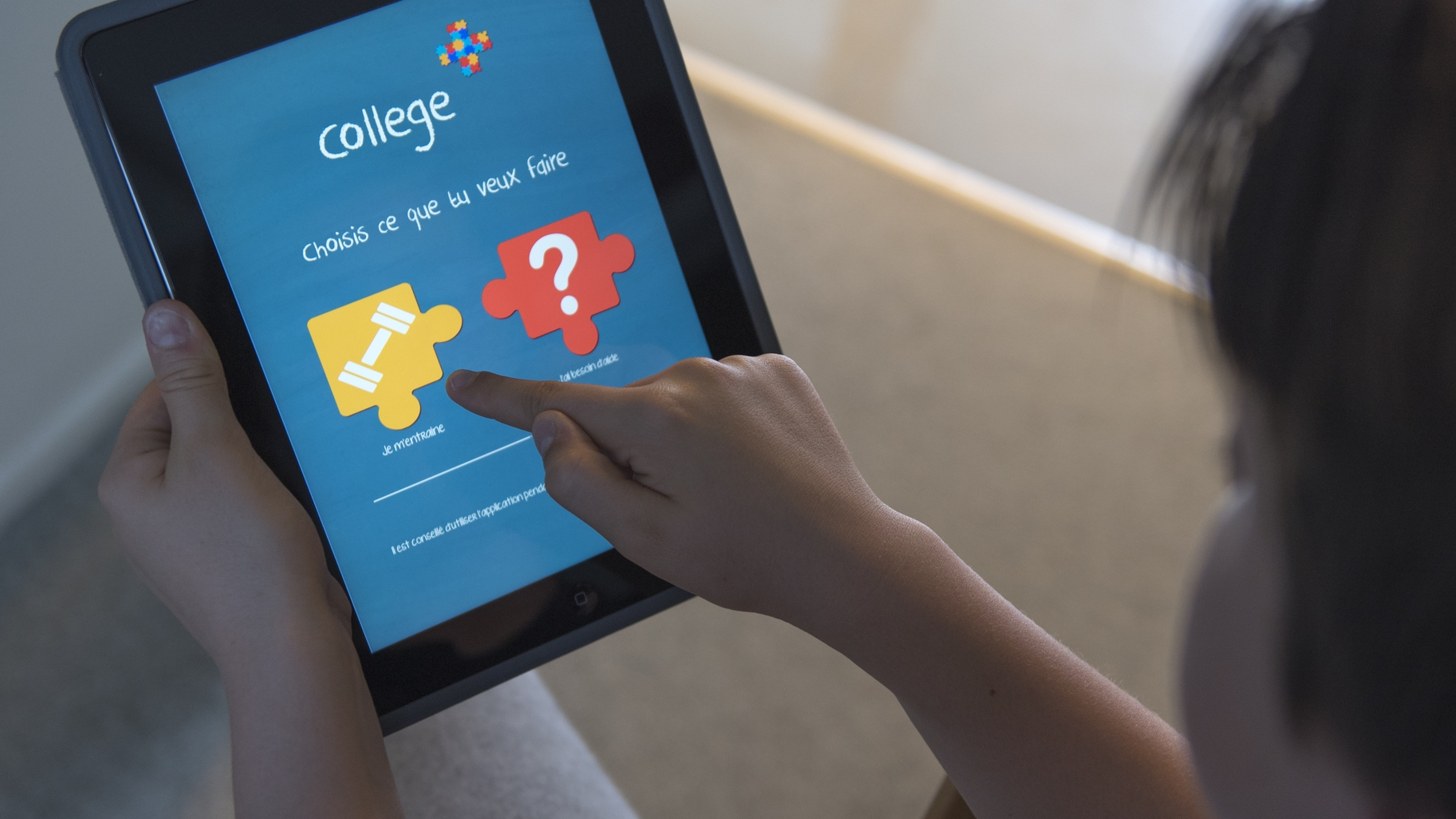Collège+ available for download on the AppStore !
Date:
Changed on 06/05/2020

A tablet version is now available for free on the l’AppStore.
Financed by the Fondation Orange and the French Ministry for National Education, the Collège+ application is based on a user-focused approach, which consists in involving all of the stakeholders from the initial design phases onwards (parents, students, clinicians and carers for children with a disability (AESH)). These exchanges have enabled the identification of everyone's needs and the development of a tool incorporating the constraints and preferences of the environment and the target population.
This approach has made it possible to end up with an application adapted to its context of use, as Sophie Gerbé, ULIS (localised units for inclusive education) teacher-coordinator at the Collège Gérard Philipe secondary school in Pessac, attests: "All of the school's staff have noticed a progression in the social adaptation of the students. They speak more easily (in regular lessons), they express themselves naturally to the staff (service staff, education assistants, etc.), they are not scared to go to admin, and some of them have been able to turn to the other students at the school and even go to the common room over lunchtime."
The Gironde departmental council, Leclerc and the Rotary Club of Bordeaux financed the tablets for the students involved in the trial.
Being schooled in a normal environment is a recognised factor for the integration of children with ASD. However, this integration remains very limited: the students often stay confined to the ULIS and are rarely included in regular classes with the other students in the school. This situation leaves them with very few opportunities for social experiences with their peers.
An essential barrier to the inclusion of these students in regular classes is the acquisition of social-adaptive behaviours. The observations identified very often concern:
These social-adaptive behaviours are the breeding ground for the development of educational learning. Moreover, they contribute to the establishment of the skills required to attend school, as demonstrated by assessment tools of educational disability.
Collège+ regroupe deux ensembles de modules visant à favoriser l’acquisition des comportements socio-adaptatifs scolaires tout en promouvant l’auto-détermination.
Assistance modules for school life
They are used in class and include a task assistant dedicated to school routines (e.g. getting out their classroom equipment) and to verbal communication routines (e.g. asking a question). Another module enables the child to control his/her emotions.
Remediation/training modules
They are used in ULIS or at home and develop the child's capacity to manage and mentally interpret the emotions they perceive. For this training, static and dynamic situations are proposed to the child. Another module aims to train the child to maintain eye contact in different social situations. Finally, a module trains the child to plan and solve everyday problems (e.g. task assistant).
For each of these applications, the content is managed separately by an interface, which means that each element (images, texts, parameters, etc.) can be modified at any time without changing the interface of the applications. This functionality therefore enables a personalisation of the content depending on the child's needs and preferences.